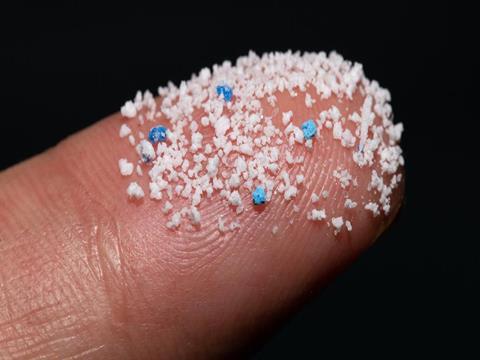
Biopolymer specialist Teysha Technologies has partnered with an undisclosed North American additives manufacturer to begin joint testing and optimisation on a range of Teysha’s materials, with a focus on developing alternatives to petroleum-based microplastics.
Teysha Technologies says that the partnership with the North American additives manufacturer – which cannot be disclosed for commercial reasons – will involve application testing of the company’s second-generation biopolymers, AggiePol, as well as newly developed polymer lines.
Matthew Stone, Managing Director of Teysha Technologies, comments: “We’ve known since 2018 that 13m tonnes of plastic reach our oceans each year and more recently that microplastics ingested by marine life are already entering the commercial food supply.
“This partnership represents our continued commitment to focus on developing earth-friendly and natural alternatives to eliminate microplastics from our waterways.”
The partnership, it adds, is aimed at replacing microplastics in a range of applications depending on end-use requirements. This includes dyes, paints, inks, exfoliants, emulsions, waves, lubricants, and glosses, among others.
The partnership will also tie in with Teysha’s work with global cosmetics customers to develop sustainable replacements for microplastics in their product lines.
Using Teysha’s plug and play technology, the monomers and comonomers that make up conventional plastic can reportedly be derived from natural sources, such as starches and agricultural waste products, instead of hydrocarbon-based petrochemicals.
In addition, Teysha Technologies’ original AggiPol bioplastic has apparently been advanced through the development of a series of materials that exhibit tuneable thermal properties.
According to Professor Karen Wooley, chief technology officer at Teysha Technologies: “AggiePol now provides for variable solubilities, thermal transition temperatures, and mechanical behaviours.
“This allows the materials to be used as additives or neat plastics in applications ranging from additives, personal care and cosmetic products to personal protective equipment, plastic packaging, and engineering plastics.
“This means we can tune the biopolymer according to individual application requirements to operate and then break down under specific environmental and thermal conditions, a critical benefit compared with conventional plastics, that can persist in the environment for thousands of years.”
Teysha Technologies joins other companies in providing innovative and sustainable solutions for the plastics industry, as negotiations and debates about plastic waste continue in the European Union and beyond. Last month, multinational chemicals company BASF introduced IrgaCycle, a portfolio of additive solutions that it claims will improve the properties of mechanically recycled plastics.












